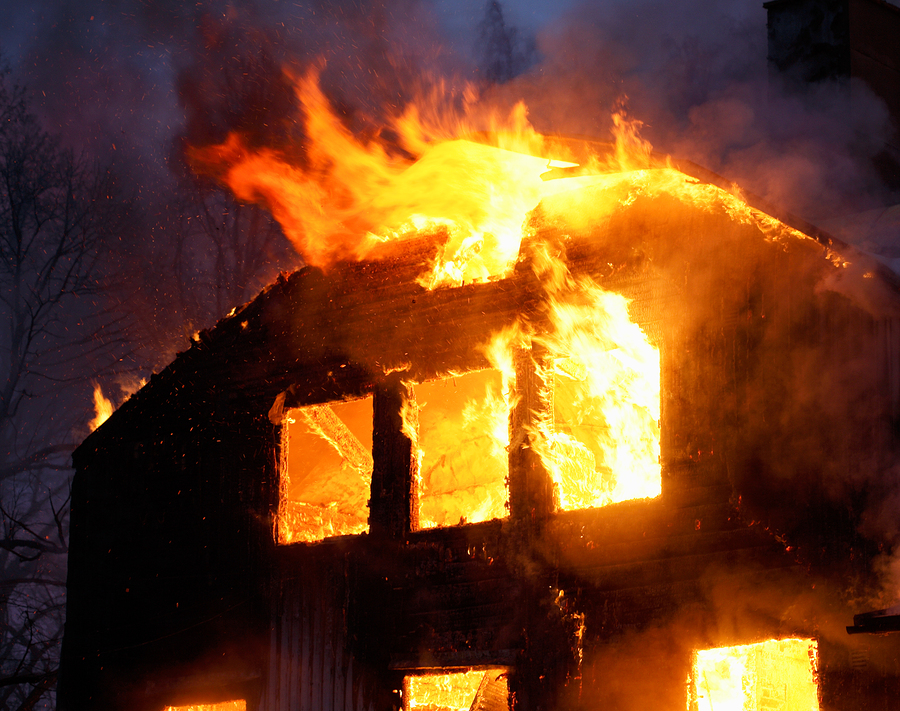According to a National Fire Protection Association (NFPA) report that examined data collected between 2007 and 2011, U.S. fire departments respond to an average of 366,600 home structure fires per year. These fires cause an estimated average of 2,570 civilian deaths and 13,210 civilian injuries. They result in $7.2 billion in direct property damage.
If you believe you’ll never experience a home fire, the odds are against you. The NFPA Fire Analysis and Research Division states Americans can expect to average a home fire every 15 years or five fires in their lifetime. While most of these fires will be small, cause little to no damage, and go unreported, you have a one in four chance of experiencing a home fire that requires fire department assistance.
Fortunately, you can improve your family’s chances of surviving—and protect your structure and other belongings—by following these tips:
Cook with care – Never leave the kitchen while you are frying, grilling or broiling food. Additionally, do not leave items on or in your oven to simmer, bake, roast or boil while you’re away from home. If you must leave—even to run to the store or pick up your kids from school—turn off the stove.
Don’t crowd space heaters – Space heaters need exactly that: plenty of space. Whether fixed or portable, position your space heater at least three feet from anything that is flammable. Additionally, always turn off your space heater when you leave the room or go to sleep.
Quit smoking ASAP – While cooking equipment is by far the leading cause of home fires, smoking materials cause the most home-fire deaths. If you must smoke, do so outside whenever possible. Additionally, you should always utilize a sturdy, deep ashtray (whether inside or out) and never smoke in bed.
Hide matches and lighters – If you have children in your home, keep all matches and lighters out of their reach. Even better, store them in a cabinet with a childproof lock.
Inspect all electric cords – Carefully examine all the electric cords in your home, from the ones attached to your electronic equipment and kitchen appliances to the extension cords you use in your garage. Never use a cord that is cracked or damaged, has a broken plug, or sits too loosely in the outlet. Replace it instead.
Never leave candles unattended – Place candles at least one foot away from anything that can burn. Never leave candles burning when you leave a room or go to bed or unattended around children or pets.
Create a fire escape plan – Make sure your family is ready should a home fire occur. Create an escape plan for every room in your home. Have a fire drill to practice your escape at least twice every year.
Install (and maintain) smoke alarms – From 2007 to 2011, 37 percent of home fire deaths occurred when no smoke alarms were present. Twenty-three percent occurred when smoke alarms failed to operate. Smoke alarm failures are usually the result of missing, disconnected or dead batteries.
Make sure you have at least one smoke alarm on every level of your home as well as inside every bedroom. For the best protection, the NFPA recommends homeowners use combination ionization and photoelectric alarms. You should test every alarm at least once per month, change out batteries at least once a year, and replace smoke alarms every 10 years.
While even a small home fire can be disconcerting, a larger event could destroy everything you own. Whether you need a fire insurance policy or want to review your coverage, contact your insurance agent today.
